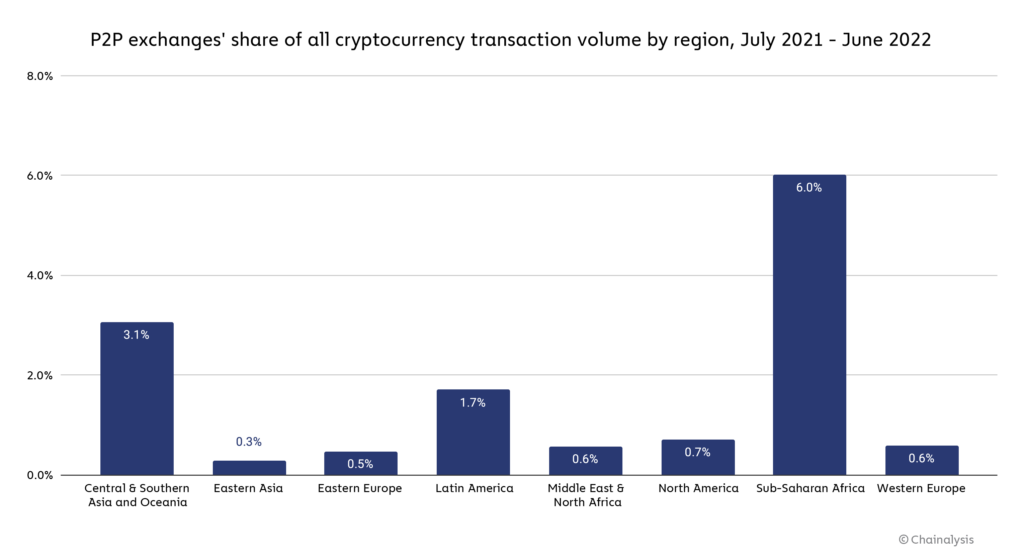Africas Crypto Ecosystems are the most advanced: Retail transfers account for about 95% of all transactions.

October 17, 2022
According to the most current Chainalysis research, Sub-Saharan Africa has some of the most developed cryptocurrency ecosystems, despite statistics showing that the region has the fewest cryptocurrency transactions when compared to other regions.
According to the report, the African region stands out for using P2P services excessively as “Retail-sized transfers below $10,000 make up 6.4% of its transaction volume, more than any other region.” When we consider the quantity of individual transfers, the importance of retail is much more apparent.

According to Chainalysis, Adedeji Owonibi, founder of Nigeria-based blockchain consultancy and product studio Convexity, spoke more about this dynamic. “We see a lot of daily traders who are trading to make ends meet,” he said. “We don’t have big, institutional-level traders in Sub-Saharan Africa. The people driving the market here are retail. Nigeria has a ton of highly educated young graduates with high unemployment rates, no jobs available — crypto to them is a rescue. It’s a way to feed their family and solve their daily financial needs.” According to Adedeji, the volatility of the Nigerian naira also drives the need for cryptocurrency in the country, as users believe they can better preserve their savings with stablecoins like Tether.
P2P exchanges are a crucial part of the ecosystem
P2P exchanges are also being widely used. P2P exchanges account for 6% of total cryptocurrency transaction volume in Africa, which is more than double the percentage of the next-closest region, Central and Southern Asia and Oceania.

Sub-Saharan Africa’s reliance on outside remittances and increased commerce is powering commercial and other use cases of crypto.
Owonibi told the analytics firm, “Companies need to buy materials from the United States, but there’s no way to get the money there — they’re left with no option but to use USDT.”
Chainalysis anticipates that the use of cryptocurrencies in Sub-Saharan Africa is set to increase as long as regulations, economic volatility, and the need for cross-border transactions remain.
DISCLAIMER
Our website only contains information that is presented in good faith and for general informational purposes. Any actions the reader takes in reliance on the material on this website are solely their own responsibility.



